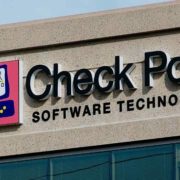Minister of Communications and Digital Economy, Dr Isa Ali Ibrahim Pantami, has commended Governor of Ekiti State, Dr Kayode Fayemi, for slashing the right of way (RoW) charges for telecommunications infrastructure from N4,500 to N145 per linear metre – a major push in the national agenda to achieve affordable broadband access.
Governor Fayemi signed the Executive Order No. 007 of 2020 on Right of Way Charges on Telecommunications Infrastructure last week significantly crashing the price at which telecoms operators deploy services.
For over a decade, high RoW charges have been a major blight over ability of operators to rollout service nationwide.
Since assuming office last year, Pantami has led his ministry to champion the battle for states to cut down the retrogressive RoW charges. The minister expressed his delight that Ekiti State appears to be a positive turning point in the fight to speed up national broadband access.
Accordingly, the Executive Order shall “specifically target all sectors of Ekiti State including rural homes, farms, small businesses, manufacturing and production sites, transportation systems, and healthcare and educational facilities”.
It is also noteworthy that the Order specifies that “Right of Way charges related to the laying of broadband or any other telecommunications infrastructure in Ekiti State shall not exceed N145 per linear metre”.
“This action of providing a policy backing to the Right of Way charges is truly commendable. It is also in consonance with the resolution of the State Governors under the auspices of the Governors’ Forum on the 22nd of January 2020 to address the lingering issue of Right of Way (RoW) charges in a bid to deepen broadband penetration in the country and promote a Digital Economy for a Digital Nigeria,” said Pantami in statement released this week in Abuja.
He added: “At that meeting the Executive
Governors had resolved to adopt the 2013 resolutions reached by the National
Economic Council (NEC) which agreed on a maximum RoW charge of N145.00 per
linear meter of fibre. Implementing this resolution will go a long way in
implementing the National Broadband Plan (NBP) which was launched by His
Excellency, President Muhammadu Buhari, GCFR, on the 19th of March
2020.
“An increase in broadband access will have a positive impact on the economy of the various States as well as the entire country. One of the key benefits is the rapid growth in the gross domestic product (GDP) of any country that increases its broadband penetration. The negative impact of the COVID-19 pandemic has accentuated the importance of broadband in supporting economies around the world.”
While commending Ekiti State, Pantami called on other executive governors “to emulate this action in order to accelerate broadband penetration across the country.”
According to the latest data released by the Nigerian Communications Commission (NCC) broadband penetration has risen to 37.7% as of November 2019. The country’s target for 2021 is 70% broadband penetration.































